If you are wondering how much your car or trucks, you may not know where to find out. Getting the weight is important if you need to haul a heavy load, pull a trailer, cross certain bridges, report the weight to DMV, and when you want to junk a car. Vehicle weights of different classes vary and below I’ll get more in–depth about types of weights, examples of weights by size, and of course who can weigh the vehicle for you. I will also share my experience with the vehicle scale near me.
Map of Vehicle Scale Near Me
For “vehicle scale near me”, “car scale near me” and “truck scale near me”, see the map below…you can navigate zoom in and out, home jump left by 75%, and home jump right by 75% as you need.
What Is Vehicle Scale?
Vehicle scale refers to a system used to measure and quantify the weight of vehicles, ensuring compliance with legal weight limits for road safety and infrastructure preservation. These scales are essential tools for industries such as logistics, transportation, and agriculture, helping prevent overloading and maintaining road integrity.
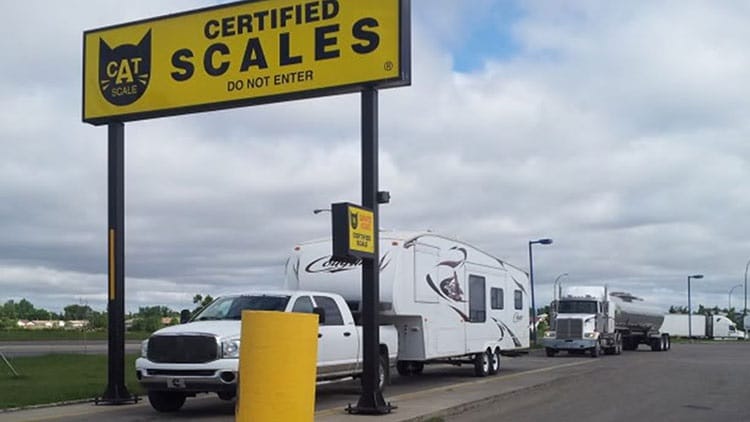
How Does a Vehicle Scale Work
A vehicle scale is similar to a body weight scale but built to calculate the weight of a vehicle in metric and imperial units. This type of scale weighs vehicles in tons. It can handle various types of vehicles from passenger cars, pickup trucks, SUV’s, medium and heavy–duty trucks, and semi–trucks.
You simply pull your vehicle onto the scale and it tells you how much it weighs in tons and pounds. Some are really long and look like a small bridge. They are big so they can accommodate weighing a semi truck. There are also some that are driver operated and there isn’t an attendant. At the vehicle scale facility, operators can easily switch between metric and imperial units for data recording with just a simple press, ensuring accurate and convenient storage of essential information.
How Accurate is a Vehicle Scale?
Some scales are only accurate up to 10 to 20 pounds. There are some other things that may also throw off the weight of your vehicle:
- Gas in the tank
- Spare tire in the trunk
- Cargo or heavy equipment
- Passengers inside
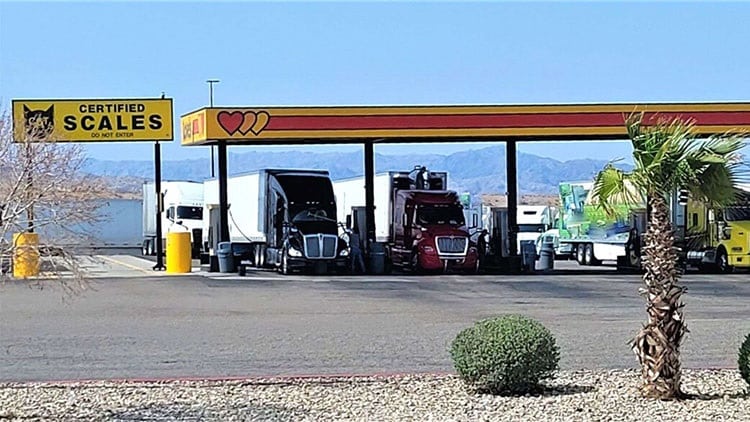
Understanding Different Types of Automobile Weights
There are actually a few different ways that a car or vehicle’s weight is determined. It’s not all just the literal weight of the vehicle. You may need to know the weight of the vehicle plus the passengers or the load on each axle. Here I’ll walk you through the popular types of weights that are commonly measured.
- Gross Vehicle Weight = Vehicle weight + all cargo + all passengers
- Curb Weight = Vehicle weight – all cargo – all passengers
- Dry Weight = Curb Weight – all liquids in the vehicle
- Payload = Vehicle weight + all cargo and equipment + all passengers + anything being towed
- Gross Vehicle Weight Rating = The maximum amount of gross weight the vehicle can handle
- Gross Combined Weight = Gross vehicle weight + weight of a trailer if you are towing
- Maximum Load Trailer Weight = Gross vehicle weight + weight of a fully loaded trailer if you are towing
- Gross Axle Weight = The current weight each axle is supporting
- Gross Axle Weight Rating = The maximum amount an axle can support
This all may seem like a lot to understand if you are just wondering how much does my car weigh. To answer that question you will want to specifically know the curb weight of your car. You can get more info here with specific manufacturer and model weights.
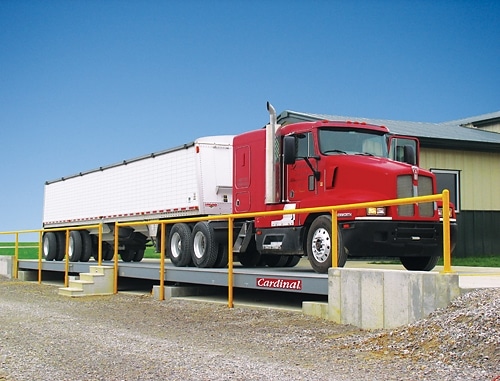
Truck on Vehicle Scale
Weights of Common Vehicle Classes
Vehicle manufacturers have worked really hard in recent years to lower the weights of cars. Some of this is related to environmental standards and also for fuel efficiency. Let’s specifically talk about common curb weights. How much do the average vehicle classes weigh? Here are a few examples:
- Compact Car averages about 2.9 Tons
- Midsized Cars average about 3.4 tons
- Large Cars averages about 4.3 tons
- Compact Trucks or SUVs average about 3.4 tons
- Midsized Truck or SUV averages about 4.2 tons
- Large Truck or SUV averages about 5.4 tons
If you are looking to junk your car for cash, you can probably guess that the more it weighs the more money it is worth.

How Much Does My Car Weigh?
Now let’s get more specific about finding how much your car or truck actually weights. Since car and truck weights can fluctuate make, model year, add–on packages, and the materials used. Here is how you can find your vehicle‘s specific weight in tons.
- Driver Side Door Jam: Some vehicles list the curb weight on the sticker inside the driver’s side door jam.
- Owners Manual: Some vehicles list the curb weight in the owners manual.
- Manufacturer Website: Some manufacturers post the curb weights of their vehicles online.
- Vehicle Scale: Locating a vehicle scale near me can give you a good estimate of the weight of your car or truck.
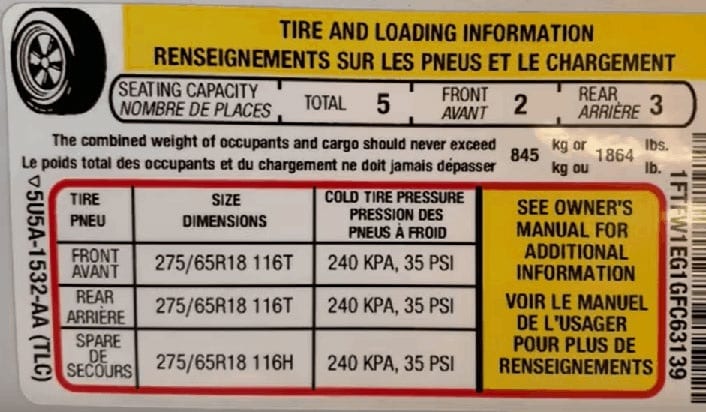
Where Can I Find a Vehicle Weight Scales Near Me
You may or may not be aware, but there are weight stations along highways. These are here because the Department of Transportation has strict regulations that apply to loads carried by vocational vehicles and semi-trucks. There are also scales at truck stops in rest areas.
If the station doesn’t have anyone on the scale, they will typically allow you to weigh your vehicle. At the vehicle scale near me, you can pay the attendant $5 to $10 and they will let you pull your car on. Truck drivers can also rely on the cat scale locator to find nearby truck scales.
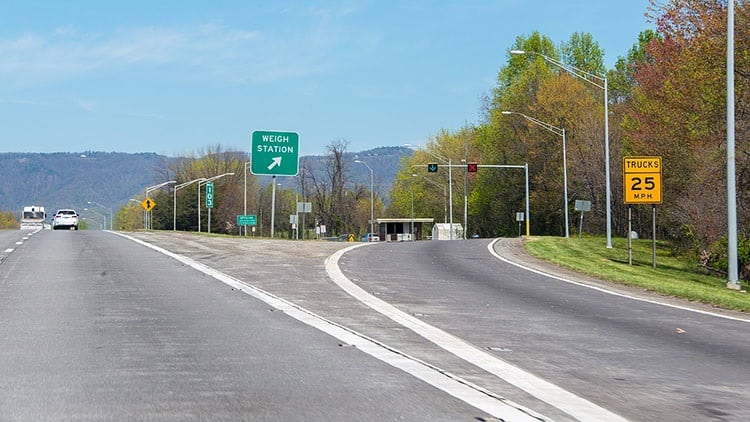
Other Weighing Locations
Aside from hitting a vehicle scale at a weight station, there are other places I have had success getting my automobiles weighed. Recycling centers and landfills also can weigh a vehicle. They weigh vehicles that drop off loads, but you can typically ask them if you can pull your car onto the scale.
Where to Weigh My Car if it Doesn’t Run
Since we are a junk yard blog, we typically think of weighing junked cars to estimate the value in scrap. The problem with junk cars is that most of them are not driveable and you likely can’t get it to your local vehicle scale or weight station. In these situations your options are towing it to a weight station, researching the curb weight, or estimating it based on comparable vehicles.
Knowing the weight yourself before getting offers on your scrap car can help you get more money when negotiating. Salvage yards will underestimate a vehicles curb weight to offer you a lower scrap price.
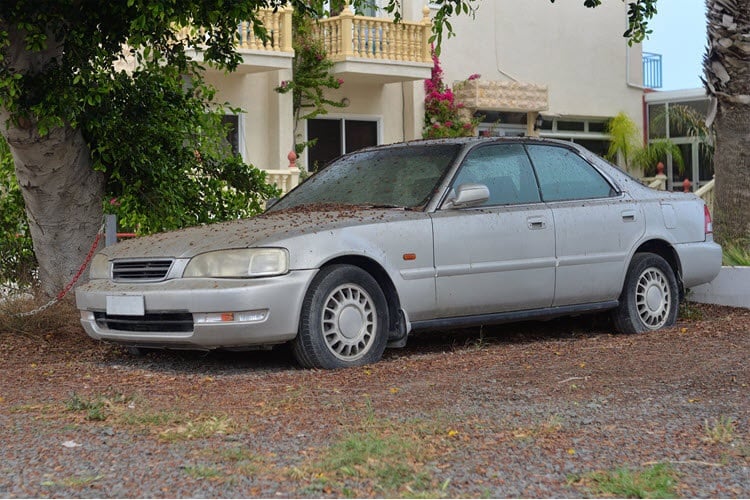
Vehicle Scale Near Me – Final Thoughts…
There are plenty of options to get a pretty good estimate of how much your vehicle weighs. My favorite and most common method is to hit up my local standard weighing station. If you slip the attendant a few bucks they normally will let you pull your car or truck right on the scale. No matter the reason you need to know the weight, knowing where to get it done is helpful. This is what I have learned using the vehicle scale near me.
